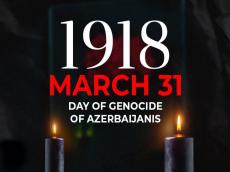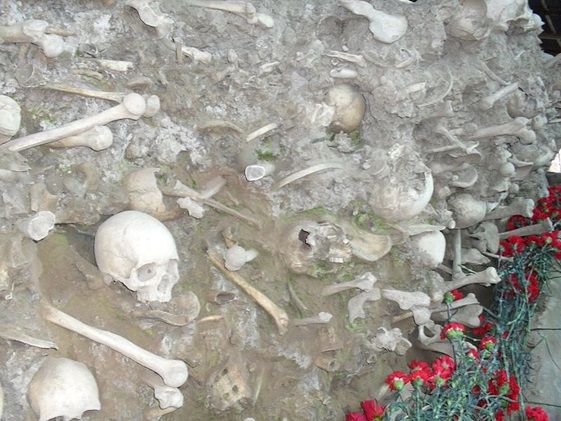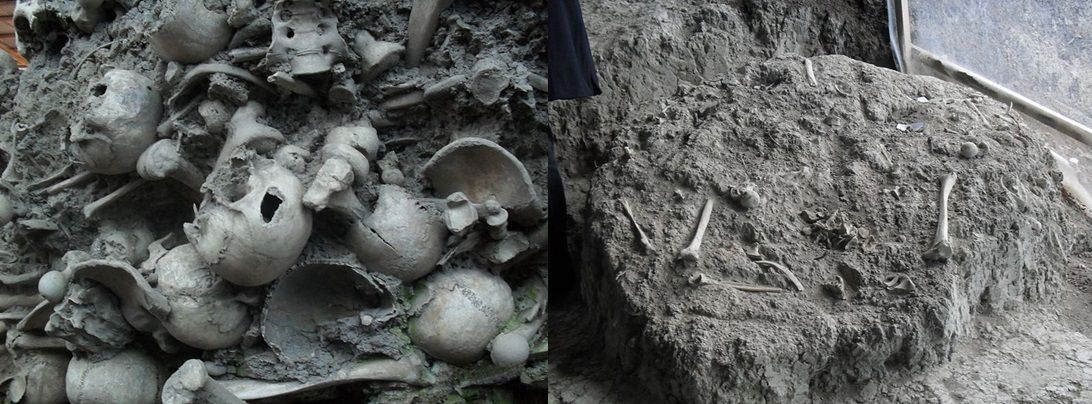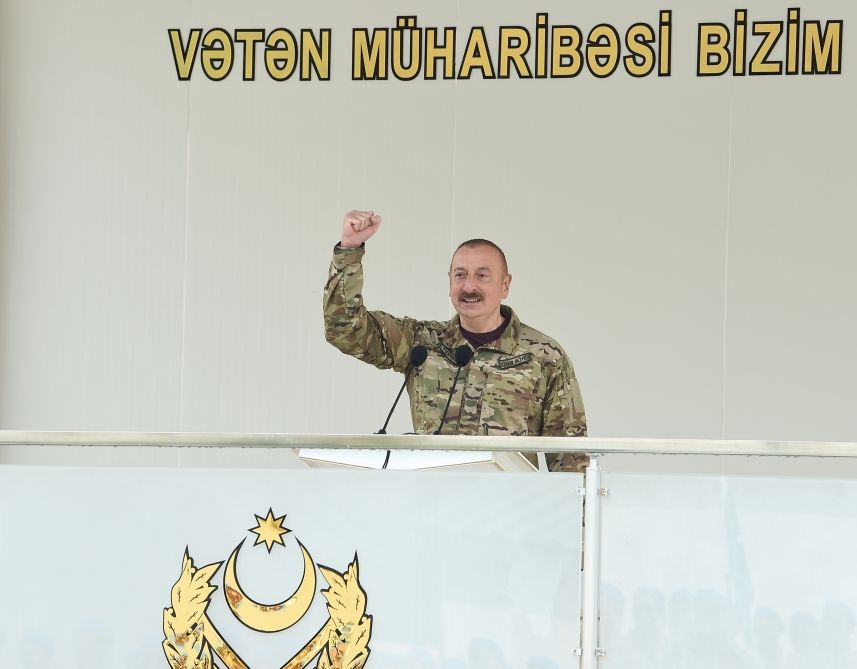|
|
TODAY.AZ / Politics
31 March Genocide: History of Armenian crimes spanning over a century
30 March 2023 [11:59] - TODAY.AZ

By Azernews
Elnur Enveroglu
Azerbaijanis as the natives of the South Caucasus were repeatedly subjected to great divisions and experienced numerous tragedies in the XIX-XX centuries.
Regrettably, the foundations of these tragedies were precisely laid by the Gulustan and Turkmanchay Treaties of 1813 and 1828, which divided Azerbaijan into southern and northern parts between the Russian Empire and Iran.
The successive acts of genocide committed against Azerbaijanis continued in the subsequent period with the process of alienation of the divided lands.
Following the signing of the treaties that divided Azerbaijan, Armenians were resettled en masse to Azerbaijani as an integral part of the Russian policy to retain its hegemony in the region with the help of Armenians. Driven by the fake idea of establishing a "great Armenia", Armenian usurpers carried out a series of mass killings and massacres against Azerbaijanis.
Between March 30 and April 3, 1918, the Baku Soviet and the Dashnak Armenian armed groups brutally killed Azerbaijanis en masse, setting fire to houses in Baku governorate, as well as in Shamaxi, Guba, Xacmaz, Lankaran, Hajigabul, Salyan, Zangazur, Karabakh, Nakhchivan, and other areas.
After 80 years, on March 26, 1998, National Leader Heydar Aliyev, as the president of Azerbaijan, decreed marking March 31 as the Day of Genocide of Azerbaijanis.
History is not dead and buried

The mass graves, discovered accidentally during the excavations for construction purposes in the town of Guba in 2007, were vivid evidence of the genocide of the Muslim population of Guba by the Armenian armed groups under the guise of Bolsheviks in May 1918.
Azerbaijani President Ilham Aliyev ordered the construction of a Genocide Memorial Complex in Guba city on December 30, 2009, with a view to delivering realities to the world community, preserving the national memory of future generations of the Azerbaijani people, and eternalizing the genocide victims’ memory.
The Memorial Complex was constructed on the left bank of the Gudyalchay River in Guba city, in the former stadium area in 2012-2013.

The venue where the human bones were found during the reconstruction of the sports complex on the right bank of Gudyalchay in Guba cannot be called a cemetery as human bones were found in a pile as thrown in large holes.
The bones were found in two wells on the banks of the river. The diameter of the large well is 5 meters, and the smaller one is 2.5 meters. There is a distance of 2 meters between the wells. Hundreds of commingled human skeletons were poured into the big well.
Even archeologists and officials of the local authorities confirmed that there has never been a cemetery in this area. The fact that the skeletons were not found intact indicates that people were brutally killed, torn apart, and thrown into the wells after being killed. The most terrible point is the separate burial of the human skull and body bones in the discovered area, which shows that the heads of genocide victims were cut off with special cruelty.
And most importantly, forensic researches confirm that the bones found in the wells during the excavations in Guba belong to the victims of the Armenian genocide in 1918.
This once again shows that history can neither be killed nor buried. This means that the real face of history is not on the surface but under the soil.
The Patriotic War that put an end to tragedies

Indeed, as the saying goes, with every difficulty comes relief. The people of Azerbaijan successfully emerged from the ordeal of history by struggling for nearly two centuries. Despite lands being occupied, innocent people were killed - but the people of Azerbaijan were not totally defeated.
However, Armenian vandalism did not end with the 1918 genocide. When we flip through the history pages of 1990, 1991, and 1992, we come across the tragedies of genocide again. Such tragedies as Garada?li, Khojaly, Agdaban, Ball?gaya, Bashlibel, and others show that Armenian hatred has not cooled down over years.
Nevertheless, this had to end one day, and finally, that day came - the Second Karabakh or Patriotic War, which ended with the glorious victory of the Azerbaijani army, under the leadership of the supreme commander-in-chief, put an end once and for all to the centennial Armenian policy of genocide against the people of Azerbaijan.
URL: http://www.today.az/news/politics/233290.html
 Print version
Print version
Connect with us. Get latest news and updates.
See Also
- 27 February 2026 [13:13]
Armenian "Ivan Vasilyevich": Seyran Ohanyan's wife may go to jail - 27 February 2026 [11:11]
Events in Sumgayit: it was necessary for everyone except Azerbaijan - 27 February 2026 [11:01]
President Ilham Aliyev, Prime Minister of Ethiopia hold one-on-one meeting - 27 February 2026 [10:00]
Ethiopia’s PM visits Victory Park - 27 February 2026 [09:50]
Ethiopia’s PM visits grave of National Leader Heydar Aliyev at Alley of Honor - 26 February 2026 [12:12]
From Strasbourg to Epstein Files: How Jagland destroyed Norway's relations with Azerbaijan - 25 February 2026 [12:12]
Peace agenda and memory of Khojaly are impossible without each other - 25 February 2026 [11:59]
President Ilham Aliyev attends opening of Lankaran State Vocational Education Center - 25 February 2026 [11:39]
President Ilham Aliyev sends congratulatory letter to Emir of Kuwait - 24 February 2026 [15:21]
Delegations from parliaments of Türkiye and Georgia visit Alley of Honor and Victory Park
Most Popular
 From Strasbourg to Epstein Files: How Jagland destroyed Norway's relations with Azerbaijan
From Strasbourg to Epstein Files: How Jagland destroyed Norway's relations with Azerbaijan
 SOCAR and Samsung E&A sign memorandum to boost energy cooperation
SOCAR and Samsung E&A sign memorandum to boost energy cooperation
 Peace agenda and memory of Khojaly are impossible without each other
Peace agenda and memory of Khojaly are impossible without each other
 Pashinyan rejects calls to oust Russian military base from Armenia
Pashinyan rejects calls to oust Russian military base from Armenia
 Responsible use of artificial intelligence highlighted at Global CEO Summit in Baku
Responsible use of artificial intelligence highlighted at Global CEO Summit in Baku
 Azerbaijan’s water reservoirs have only 12 months of ‘buffer’ left, according to ADSEA
Azerbaijan’s water reservoirs have only 12 months of ‘buffer’ left, according to ADSEA
 Microsoft founder Bill Gates breaks silence on relations with Epstein
Microsoft founder Bill Gates breaks silence on relations with Epstein
